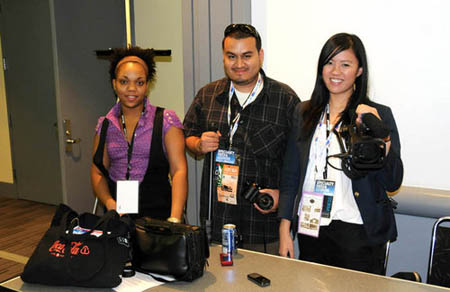Lesson 7.
More should be done to encourage student contact with professional journalists. My Ford Foundation project, for example, allowed students to work alongside professional journalists in the field. Arrangements like this can more productive than merely inviting professional journalists to be guest speakers in class (though I don’t disapprove of guest speakers but in my experience too many pros show up and blow big-time smoke, and are rarely candid about the dynamics of their newsrooms nor candid about the ethical quagmires they must negotiate in order to do their jobs and look themselves in the mirror).
More examples: Students working alongside professional journalists at the New Hampshire Primaries and at the Democratic National Convention in Denver and at the Presidential Inauguration though the latter was more about pageantry.Â
Imaginative projects can prepare students for the best internships and apprenticeships.Â
Â
I’ve begun to notice signs of a growing awareness that most undergraduate journalism programs aren’t very good. Here is an example of one sign: An email from the Institute for Humane Studies in Arlington, Virginia:
Â
Dear Editor in Chief,
…ÂWe have a workshop specifically for student journalists interested in career advice and
expanding their analytical tools and skills. We also have 11 other seminars on various topics related to the ideas of a free society. We bring together students from around the world who are interested in politics and ideas to seek a better understanding of issues like environmental concerns, globalization, or the financial crisis, and who want to become familiar with the foundations of free speech or a free press. I’m highlighting a few that I believe will hold the most appeal for your newsroom, but I encourage you to look at our entire lineup.
Â
IHS wants a lot of money for workshop topics that would be best covered in course materials.
More later.
Tags: Ford Foundation, Institute for Humane Studies, journalism education
